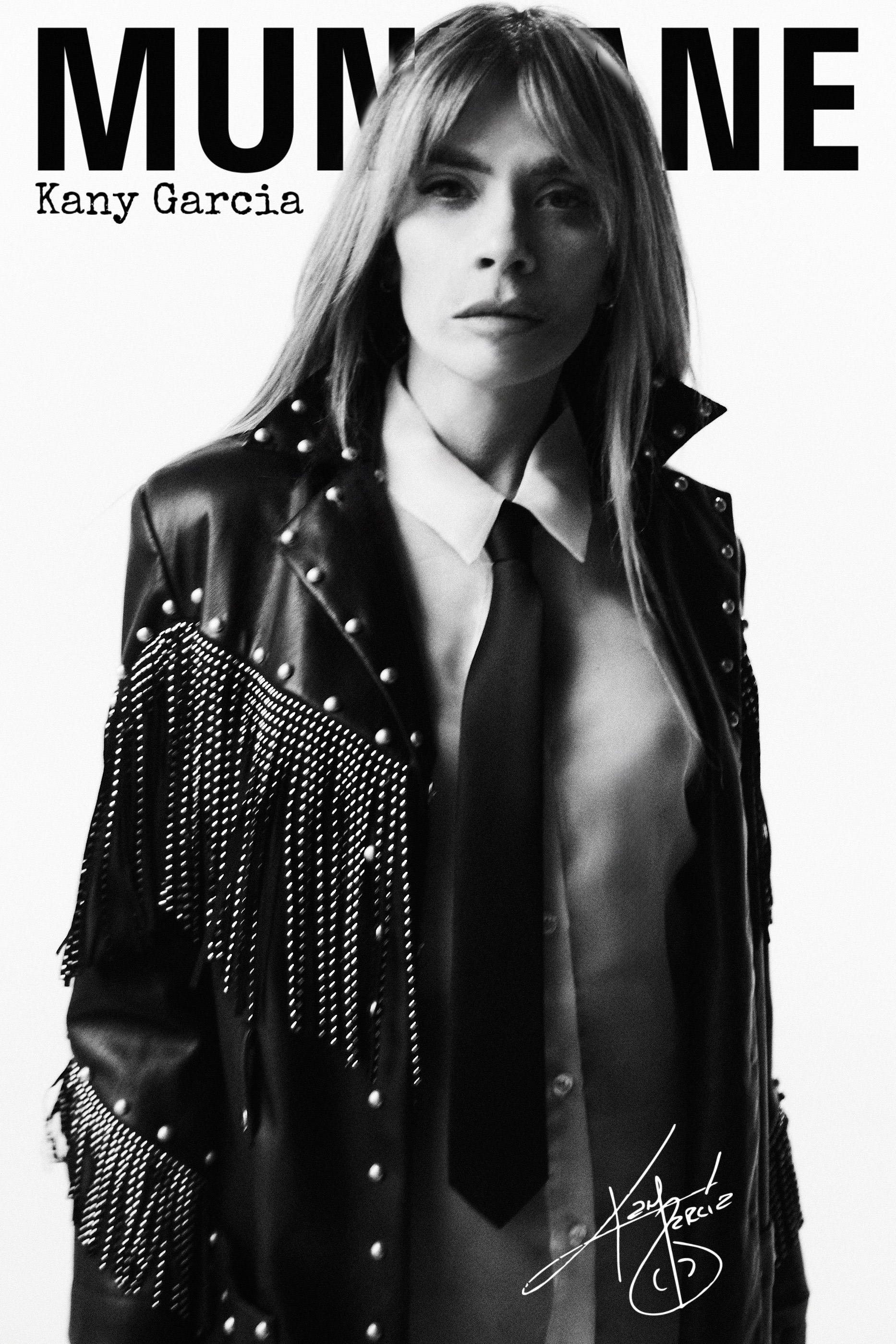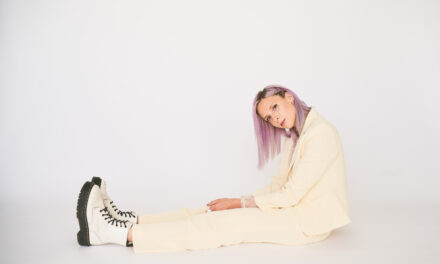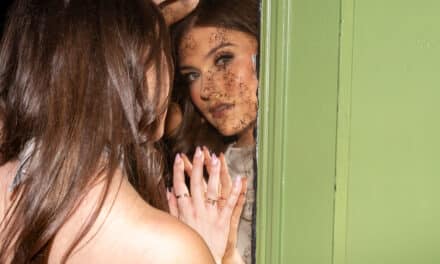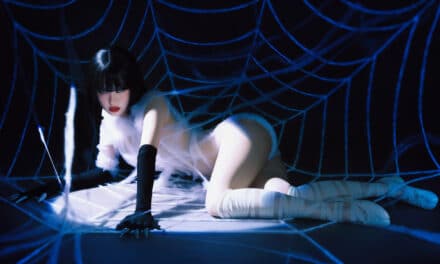Tell us about why you chose this album title
The album name is “GARCIA,” as well as one of the tracks I am performing today. “GARCIA” Because it’s my father’s last name and he represented, among a lot of other things, someone who abandoned his roots, his country..Spain, and entered into a completely different culture, a Caribbean culture, completely new and different and he ended up reclaiming it as his own, as if he had been born into that culture and this album is a bit like that. The album consists of songs and influences which I didn’t grow up knowing, using, listening to and culturally I wasn’t familiar with these sounds when I was young but I wanted to explore these sounds, these cultures freely and it’s been an album of a lot of learning from regional Mexican, to sounds like Merengue, sounds I wasn’t fully familiar with and to be able to say I want with freedom and with creativity to find these sounds it was like emulating that journey for my father of moving to Puerto Rico and adapting this Caribbean culture like he did.
You speak about women’s stories in your music, what you went through yourself as a woman. How do you write your lyrics?
When it comes to writing lyrics, I’m very demanding with myself, I think even when things have changed within my career, that continues to be a part of me, of my writing process. I think historically everything that’s happened to us women and discussing women as a theme, it has never been a “light topic”, there’s never been a moment where things have simply been given to us. I have a responsibility with what I say and it’s affected by the things I talk about, a process of education, a process of how my lyrics and my music might affect certain spaces or certain women, certain profiles. What’s happening in society now, how can I be current, not only in the sense of being relevant, but also how can I add some kind of activism into the equation and how can I talk about topics that might be uncomfortable. The research part has always been important when I write and being responsible with the topics and the lyrics I create. It’s something that will always be a part of me. So long as the message is clear, precise and direct you can form it into whatever rhythm you want it to be, and it will always reach people in a genuine way.

Photography Agustin Gomez
Styling Lionell Maldonado
Graphic Design Luca Di Fabio
How are your women’s fans reacting to this album
For me it’s been very interesting and special to receive messages from women, because I think we are a community that is very divided. A community that doesn’t always support each other. Unfortunately, we are always saying “We should support one another more. We should always believe more in each other.” But it’s never really been the norm, nonetheless to my surprise the audience that most consumes my music are women, the audience that lets themselves be affected and are very vocal are women. When that happens well, I think it affects the things I write and sing about, but also the things I say and the political stances I feel a responsibility toward and the things I stand up for. I value and appreciate so much when women come up to me and tell me that my song helped them during a point in their life, affected them in some way, or has accompanied them during specific moments, those are the moments when you realize that music has meaning, that art is still alive. When you see a piece of artwork and it speaks to you and gives you goosebumps, when you watch a movie and you’re moved and start crying, you hear a song and say “what the fuck” this song made me feel X way and those are the exact moments I feel validated with my music, with the things that I do and put out.
You’ve written so many songs in your career, is there a specifically emotional song for you?
‘Confieso’ is a song I wrote for my father. When he passed, I felt like I had the need to write a song. And I wrote a song from my head not my heart. And I said this is the song for my dad, and I went to my friends and showed them this song, and no one was really moved, and not that I was waiting for someone to cry, but I did think that in some way it would transmit the way I was feeling and they’d be able to feel that through the song. I had a friend who had the guts to tell me to my face “that’s not the song for your dad, that song doesn’t describe what I know is a priority for you.” And I value that so much because I never shared that song again. And then after a while one night in my house, I had a very cathartic moment, and I wrote a song super quickly. It was a song I didn’t expect anything of, I never expected the audience to react any sort of way to it, to like it or not like it, it was something I needed to and wanted to get out of my system, that song is Confieso. When you make things in that way without expectations, without thinking about how other people will react and you do it more for yourself, for your own needs you get what happens with this song which is, this song is the song the audience sings to the most in any of my shows.
What do you think the most important moment of your career was
I was in an elevator, and it got stuck. I was at dinner with artists that I admire a lot, Fito Paez, an Argentinean artist, a Mexican artist who I admire a lot, Natalia Lafourcade, who is from my generation, and another singer-songwriter from Spain, Rozalen. And I was like wow how incredible I get to do dinner with these really incredible singer-songwriters I admire. Then, when we got in the elevator and it got stuck we all stayed there for 30 min hanging out, just me and these incredible artists laughing hysterically having a great time and I was like wow, how cool I don’t think it’s often in life that you get stuck in an elevator with people you admire so much and just talk about stupid things and it makes me think about how sometimes that’s what life is all about, about getting stuck in an elevator and just laughing together.





